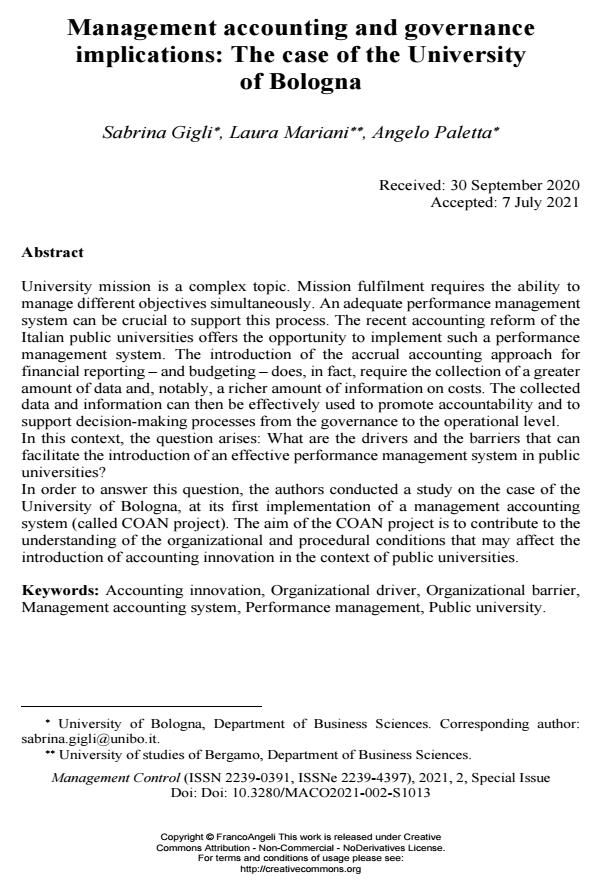Management accounting and governance implications: The case of the University of Bologna
Journal title MANAGEMENT CONTROL
Author/s Sabrina Gigli, Laura Mariani, Angelo Paletta
Publishing Year 2021 Issue 2021/suppl. 2
Language English Pages 23 P. 289-311 File size 255 KB
DOI 10.3280/MACO2021-002-S1013
DOI is like a bar code for intellectual property: to have more infomation
click here

FrancoAngeli is member of Publishers International Linking Association, Inc (PILA), a not-for-profit association which run the CrossRef service enabling links to and from online scholarly content.
University mission is a complex topic. Mission fulfilment requires the ability to manage different objectives simultaneously. An adequate performance management system can be crucial to support this process. The recent accounting reform of the Italian public universities offers the opportunity to implement such a performance management system. The introduction of the accrual accounting approach for financial reporting - and budgeting - does, in fact, require the collection of a greater amount of data and, notably, a richer amount of information on costs. The collected data and information can then be effectively used to promote accountability and to support decision-making processes from the governance to the operational level. In this context, the question arises: What are the drivers and the barriers that can facilitate the introduction of an effective performance management system in public universities? In order to answer this question, the authors conducted a study on the case of the University of Bologna, at its first implementation of a management accounting system (called COAN project). The aim of the COAN project is to contribute to the understanding of the organizational and procedural conditions that may affect the introduction of accounting innovation in the context of public universities.
Keywords: Accounting innovation, Organizational driver, Organizational barrier, Management accounting system, Performance management, Public university.
- Innovations in Sustainable Agricultural Systems, Volume 2 Aleksey N. Bobryshev, Nina R. Zargaryan, Olga A. Chudnova, pp.21 (ISBN:978-3-031-72555-5)
Sabrina Gigli, Laura Mariani, Angelo Paletta, Management accounting and governance implications: The case of the University of Bologna in "MANAGEMENT CONTROL" suppl. 2/2021, pp 289-311, DOI: 10.3280/MACO2021-002-S1013